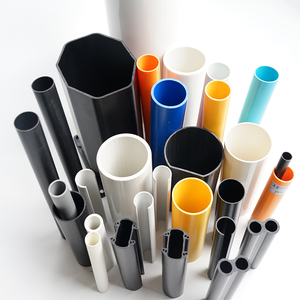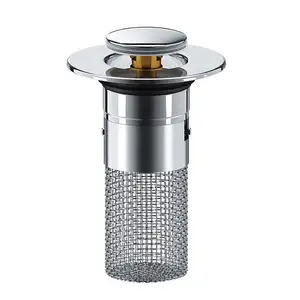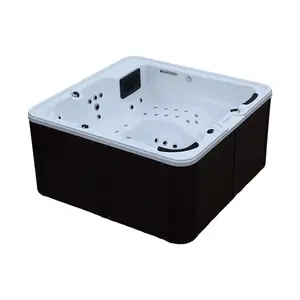Phổ biến trong ngành của bạn

Trung Quốc nhà máy PPR phụ kiện đường ống PPR ống kết nối phụ kiện Kích thước DN 20mm 25mm 32mm tuberia ống ppr
0,08 US$ - 0,11 US$
Đơn hàng tối thiểu: 100 Cái
Vận chuyển mỗi chiếc: 4,00 US$


Mẫu Miễn Phí Cung Cấp Nước Vật Liệu Ống Nước Kích Thước Lớn Inch Và Mm PPR Tên Ống Phụ Kiện Ống Nhựa
0,11 US$ - 0,76 US$
Đơn hàng tối thiểu: 10 Mét


IFAN Chất lượng cao nhựa PVC phụ kiện đường ống sch40 PVC phù hợp uPVC phụ kiện đường ống cho hệ thống ống nước
0,03 US$ - 0,06 US$
Đơn hàng tối thiểu: 20 Cái
Vận chuyển mỗi chiếc: 6,79 US$


Nhà Máy Giá HDPE ống 2 inch PE ống 600mm đường ống dẫn nước Vật liệu PE ống 25mm 50mm 100mm 200mm
0,01 US$
Đơn hàng tối thiểu: 10 Cái


IFAN cpvc phụ kiện đường ống OEM ASTM 2846 1/2 "-2" khuỷu tay khớp nối ổ cắm hệ thống ống nước Vật liệu phụ kiện PVC Ống phù hợp
0,01 US$ - 0,34 US$
Đơn hàng tối thiểu: 100 Cái
Vận chuyển mỗi chiếc: 7,82 US$


PVC Ống/Upvc Ống Nước Cho Nước, Cống, Stormwater, Nước Thải Cung Cấp Nước Nhựa Vật Liệu Xây Dựng Phim Nhựa Mỗi Bó
0,30 US$ - 1,00 US$
Đơn hàng tối thiểu: 10000 Mét

Ống Nhựa Công Nghiệp Ống Nhựa PVC Xây Dựng Cao Su Ống HDPE Và Nhà Sản Xuất Hồ Sơ PVC
0,60 US$ - 1,20 US$
Đơn hàng tối thiểu: 2000 Mét
Vận chuyển mỗi chiếc: 6,06 US$

Ống Luồn Dây PVC Nhựa Hai Đầu Ra Đôi 65/132 Ống Dẫn Nước Thải Thoát Nước Máy Làm Ống Cấp Nước Thải Bằng Nhựa PVC
21.000,00 US$
Đơn hàng tối thiểu: 1 Bộ
Các danh mục hàng đầu
Giới thiệu về ống dẫn nước upvc cột ống
Đặt hàng tùy chỉnh ống dẫn nước upvc cột ống. từ Alibaba.com là lựa chọn phù hợp cho nhu cầu của mọi người. Các ngành công nghiệp và sản xuất ở khắp mọi nơi đều cần những sản phẩm này. Một số dự án yêu cầu ống dẫn nước upvc cột ống lớn, trong khi những dự án khác nhỏ hơn và nhẹ hơn. Vì hai dự án giống hệt nhau, việc đặt hàng thứ gì đó tùy chỉnh sẽ đảm bảo mọi thứ đáp ứng các thông số kỹ thuật. Có nhiều màu sắc, thành phần và kích thước có sẵn. Mọi thứ cũng được định giá hợp lý dựa trên số lượng vận chuyển tối thiểu.
Một ví dụ điển hình cần ống dẫn nước upvc cột ống. là việc sử dụng chúng trong sản xuất cửa sổ. Khung thường được làm từ PVC và yêu cầu kích thước cụ thể. Thường thì sản phẩm này được gửi đến một vị trí khác để lắp ráp cửa sổ cuối cùng. Nếu nó không đáp ứng các tiêu chuẩn, điều đó có thể gây trở ngại đáng kể cho việc sản xuất. Ngoài ra, vật liệu phải đủ cứng để chịu được gió lớn. Với một tấn là đơn đặt hàng tối thiểu điển hình, các nhà cung cấp rõ ràng có thể nhận các đơn đặt hàng lớn.
Không phải tất cả ống dẫn nước upvc cột ống. từ Alibaba.com cần phải chính xác. Tuy nhiên, điều đó không có nghĩa là chất lượng của các sản phẩm kém đi chút nào. Nhiều nhà cung cấp chuyên về các miếng nhựa đầy màu sắc được sử dụng cho bất kỳ dự án nào. Nếu có nhu cầu thì có sẵn hồ sơ. Các sản phẩm thường cứng và thân thiện với môi trường. Ngoài ra còn có các tùy chọn mua khác nhau. Tùy thuộc vào những gì phù hợp với người mua, mua số lượng lớn theo trọng lượng hoặc chiều dài. Thậm chí có một số nhà phân phối còn cung cấp hàng tự mua với số lượng ít hơn.
Nếu một quy trình sản xuất cần chúng, thì ống dẫn nước upvc cột ống. tại Alibaba.com sẽ không làm bạn thất vọng. Với các tùy chọn về màu sắc, kích thước và chi phí, sẽ thật dễ dàng để tìm được những chiếc phù hợp. Không quan trọng nếu chúng cần phải chính xác như khung cửa sổ hay đến từ kho được tạo sẵn. Các sản phẩm luôn có chất lượng cao. Giá cả phải chăng cũng vẫn hấp dẫn.
Một ví dụ điển hình cần ống dẫn nước upvc cột ống. là việc sử dụng chúng trong sản xuất cửa sổ. Khung thường được làm từ PVC và yêu cầu kích thước cụ thể. Thường thì sản phẩm này được gửi đến một vị trí khác để lắp ráp cửa sổ cuối cùng. Nếu nó không đáp ứng các tiêu chuẩn, điều đó có thể gây trở ngại đáng kể cho việc sản xuất. Ngoài ra, vật liệu phải đủ cứng để chịu được gió lớn. Với một tấn là đơn đặt hàng tối thiểu điển hình, các nhà cung cấp rõ ràng có thể nhận các đơn đặt hàng lớn.
Không phải tất cả ống dẫn nước upvc cột ống. từ Alibaba.com cần phải chính xác. Tuy nhiên, điều đó không có nghĩa là chất lượng của các sản phẩm kém đi chút nào. Nhiều nhà cung cấp chuyên về các miếng nhựa đầy màu sắc được sử dụng cho bất kỳ dự án nào. Nếu có nhu cầu thì có sẵn hồ sơ. Các sản phẩm thường cứng và thân thiện với môi trường. Ngoài ra còn có các tùy chọn mua khác nhau. Tùy thuộc vào những gì phù hợp với người mua, mua số lượng lớn theo trọng lượng hoặc chiều dài. Thậm chí có một số nhà phân phối còn cung cấp hàng tự mua với số lượng ít hơn.
Nếu một quy trình sản xuất cần chúng, thì ống dẫn nước upvc cột ống. tại Alibaba.com sẽ không làm bạn thất vọng. Với các tùy chọn về màu sắc, kích thước và chi phí, sẽ thật dễ dàng để tìm được những chiếc phù hợp. Không quan trọng nếu chúng cần phải chính xác như khung cửa sổ hay đến từ kho được tạo sẵn. Các sản phẩm luôn có chất lượng cao. Giá cả phải chăng cũng vẫn hấp dẫn.






















